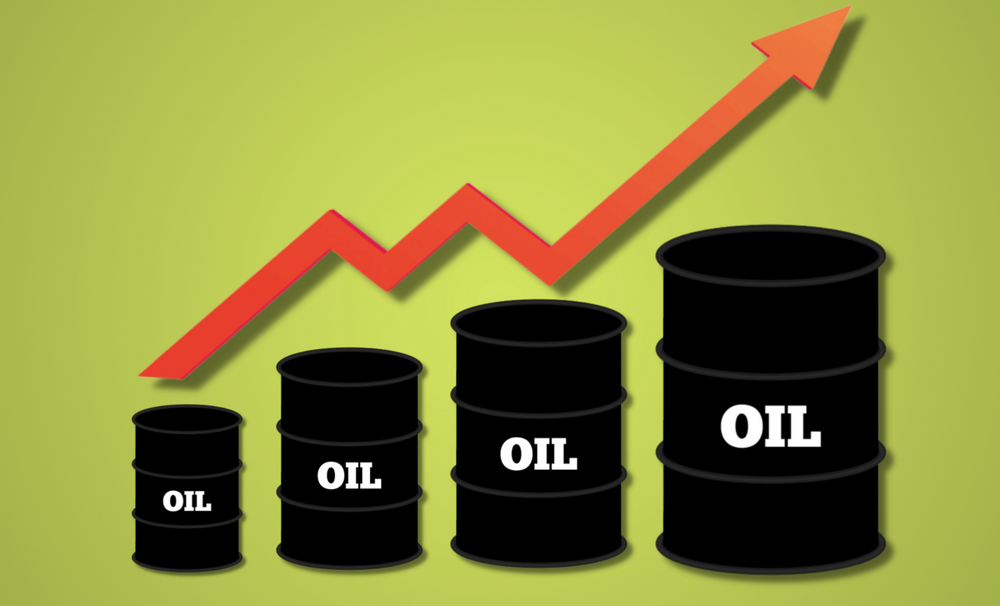This black greasy commodity has garnered everyone’s attention of late. We are talking about Crude Oil, a commodity that binds as well as divides the world. As the Russia-Ukraine issue advanced, Crude Oil prices touched a 14-year-high last week.
In this article, let’s look at if the rising crude prices have had an impact on India’s economic growth.
What is Crude Oil and why is it important?
Crude Oil is a commodity/liquid fuel found beneath the earth and extracted through drilling. It is used for transportation, heating, generating electricity, petroleum products, and plastics.
Crude has proved to be an essential commodity for years. Economies rely heavily on it to function as every industry uses crude for something or the other.
The vehicle you drive runs on the petrol or diesel extracted from crude. The truck delivering food products to supermarkets, the packaged food you eat wrapped in plastic, the polyester, nylon used to make couch cushions or carpets and others use crude oil. To put it simply, Crude Oil is vital to everything we use, wear, and eat.
It has contributed to over a third of the world’s energy consumption.
What happens when the crude oil prices rise?
Now that you know the use of crude in almost everything we use, wear and eat, it’s a no-brainer, then to guess what will happen when the prices go up.
Rising crude oil prices have a multiplier effect on the economy. It drives the prices of other fuels like gasoline, home heating oil, and natural gas up. It also plays an important role in the cost of industrial processes and residential living. Higher oil prices essentially increase the cost of everything you buy, resulting in inflation.
The impact of rising crude prices on India
India meets most of its energy needs through fossil fuels and is heavily dependent on imports to meet the requirements. Around 86% of the country’s crude is imported, which brings India’s import bills into the picture. Higher crude oil prices will increase India’s import bills and add pressure to the current account balance.
The current account tallies the value of exports and imports of both goods and services along with international transfers of capital.
Per the latest RBI data, India posted a current account deficit of $9.6 billion or 1.3% of the GDP in the second quarter of FY22. This is way down from the current account surplus of $6.6 billion or 0.9% of the GDP in Q1FY22.
However, it’s not only the current account that reels under pressure. Dan Fineman, a co-head of equity strategy for APAC at Credit Suisse says, “Higher oil prices hurt the current account, add to inflationary pressures, and increase sensitivity to Fed rate hikes”.
According to data released by the National Statistical Office (NSO), the headline inflation, as measured by the Consumer Price Index (CPI), jumped to 6.01% in January 2022 from 5.66% in December. The Retail inflation breached the upper limit of the RBI’s tolerance band of 6%.
[There are two types of inflation – Headline and core line. Headline inflation refers to the change in the value of all goods and services in the basket. Core inflation excludes food and fuel items from Headline inflation]
Last month, FM Nirmala Sitharaman presented the economic survey in the parliament that projected India’s GDP growth of 8 to 8.5% for FY23. She assumed the average crude oil price to remain in the range of $70 to $75/barrel during the fiscal.
However, crude prices have almost doubled from the government’s assumption. With Russia advancing its military operations in Ukraine, Putin warned that the crude price may go up to $300/barrel if the US and European countries put embargoes on Russian oil further.
Crude prices have increased significantly in the last two years. If the average price of the commodity stays above $100 during FY23, it will substantially hamper the country’s budget calculations.
The government has two alternatives. Either pass on the price increase to the end-user or absorb the price hike.
Fuel prices in India will increase some more if the government decides to pass on the increase in price to end-users. Needless to say, it will have a cascading inflationary impact. If the government decides to absorb the price hike, the trade deficit will widen.
After reading all this, you may feel it’s the beginning of the bad times for the country. However, that’s not the case. Let’s remind you that these are interim hiccups. This is not the only time when crude prices have gone through the roof. We have witnessed a similar trend during 2008-09 too.
ONGC CMD Alka Mittal believes that the long-term oil prices should eventually settle in the range of $60-80.
Well, we’d like to stay optimistic and believe the crude prices will come down. Predicting whether the crude oil effect is positive or negative in the long run is impossible. We may have to wait and see what happens.
Meanwhile, you may subscribe to the 5 in 5 Wealth Creation Strategy and start creating long-term wealth.
Read more: About Research and Ranking.
How useful was this post?
Click on a star to rate it!
Average rating 5 / 5. Vote count: 1
No votes so far! Be the first to rate this post.
I’m Vinay Mahindrakar, an experienced content creator with
an affinity for writing on personal finance and other financial content. I
love to write on equity investing, retirement, managing money, and more.
-
Vinay Mahindrakarhttps://www.equentis.com/blog/author/vinay/
-
Vinay Mahindrakarhttps://www.equentis.com/blog/author/vinay/
-
Vinay Mahindrakarhttps://www.equentis.com/blog/author/vinay/
-
Vinay Mahindrakarhttps://www.equentis.com/blog/author/vinay/



